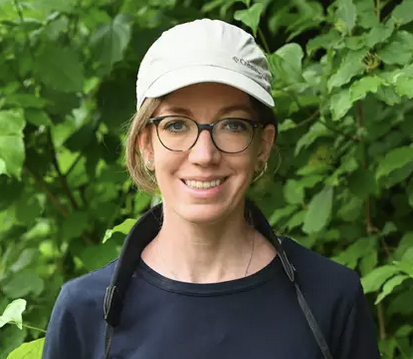CASCB talk: Navigating social and ecological landscapes, results, and future directions in wild orangutan research
Time
Monday, 19. June 2023
15:30 - 16:45
Location
ZT 702 and online
Organizer
CASCB
Speaker:
Dr. Caroline Schuppli, CASCB / Max Planck Institute of Animal Behavior
Navigating social and ecological landscapes, results, and future directions in wild orangutan research
Orangutans (Pongo spp.) live in “neighbourhoods” with high spatial overlap between individuals. Furthermore, orangutans show pronounced fission-fusion social dynamics with individuals switching between spending time on their own and being in association with other individuals. At many populations, large fruit trees represent localized spots of temporarily high food availability which are used by all individuals whose ranges overlap the area. The fruiting patterns of these trees follow no strict seasonality. Learning when and where which fruits are available is thus crucial ecological knowledge that young orangutans must acquire before reaching ranging independence from their mothers. Furthermore, these fruit trees form important social hotspots as orangutans often meet in such food patches, feed together and leave separately or they enter a food patch together as an existing travel party and then often visit the next food patch together. There is strong evidence that orangutans don’t associate randomly but that mechanisms of preferential association and avoidance are at work. The combination of this type of social organization and ecology requires individuals to make decisions about when, where, and from/with whom to group and split, and thus to engage in some degree of collective decision-making and coordination. Orangutans are therefore an ideal study system in which to investigate inter-individual spacing, including its interplay with ecological resource use and feeding competition among individuals. Furthermore, because of their slow life history and semi-solitary lifestyle, orangutans offer the opportunity to study how individuals acquire the skill sets underlying these mechanisms. However, mainly due to methodological constraints, very little research has been done to study the mechanisms underlying inter-individual spacing and resource use in orangutans. In my talk, I will highlight how new research approaches and tools may shed new light on these questions.
Caroline Schuppli obtained both her Master of Science in Anthropology and her PhD in Evolutionary Biology at the Department of Anthropology at the University of Zürich in Switzerland. After post-doctoral positions at the University of Zurich and the Leipzig Research Center for early child development at Leipzig University in Germany, Caroline started her own research group in 2020 at the Max-Planck Institute of Animal Behavior (MPI AB) in Konstanz, Germany. She is the Director of the SUAQ Orangutan Research Project in South Aceh, Indonesia, where orangutan research has been conducted since the 1990ties, and President of the board of the SUAQ foundation in Wädenswil, Switzerland. Caroline studies the development and evolution of cognition. By comparing cognitive development, skill acquisition, and cultural repertoires in multiple populations and species of orangutans, her research aims to draw conclusions on the evolutionary level. By investigating broader patterns across a wider range of species and using different comparative approaches, her research aims to also shed light on the connection between cognitive development, life history traits, and cognitive evolution across species.

